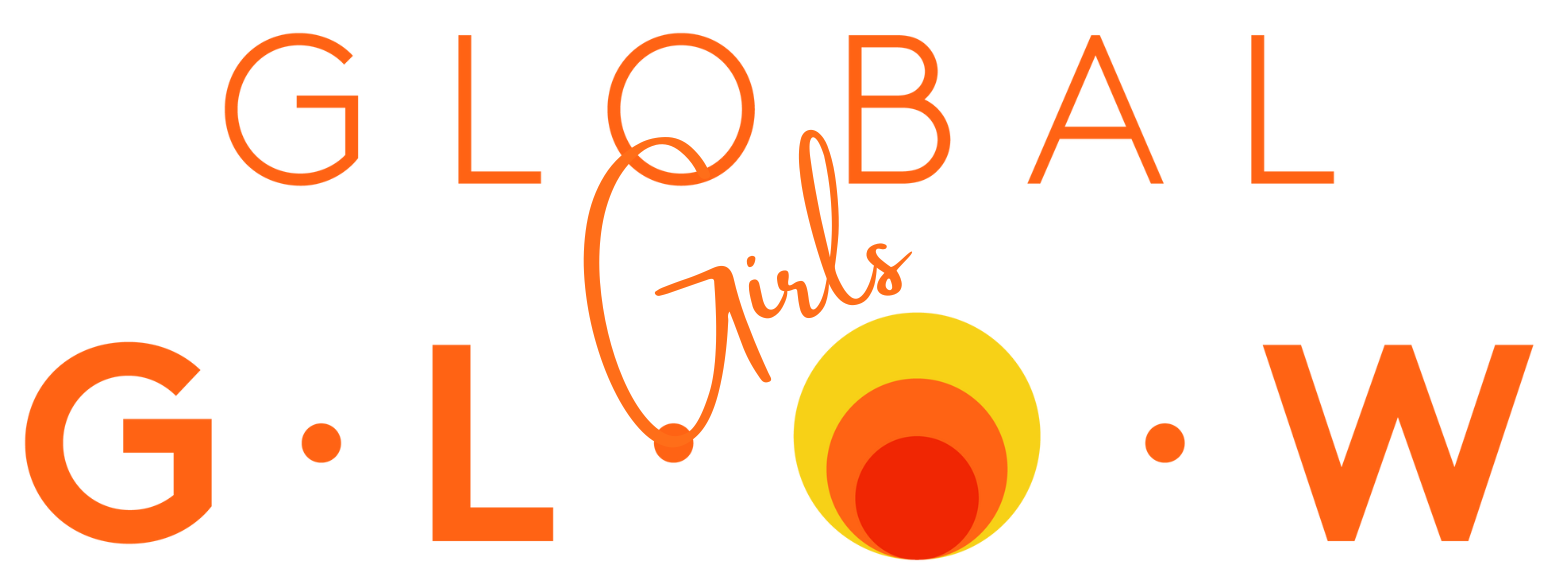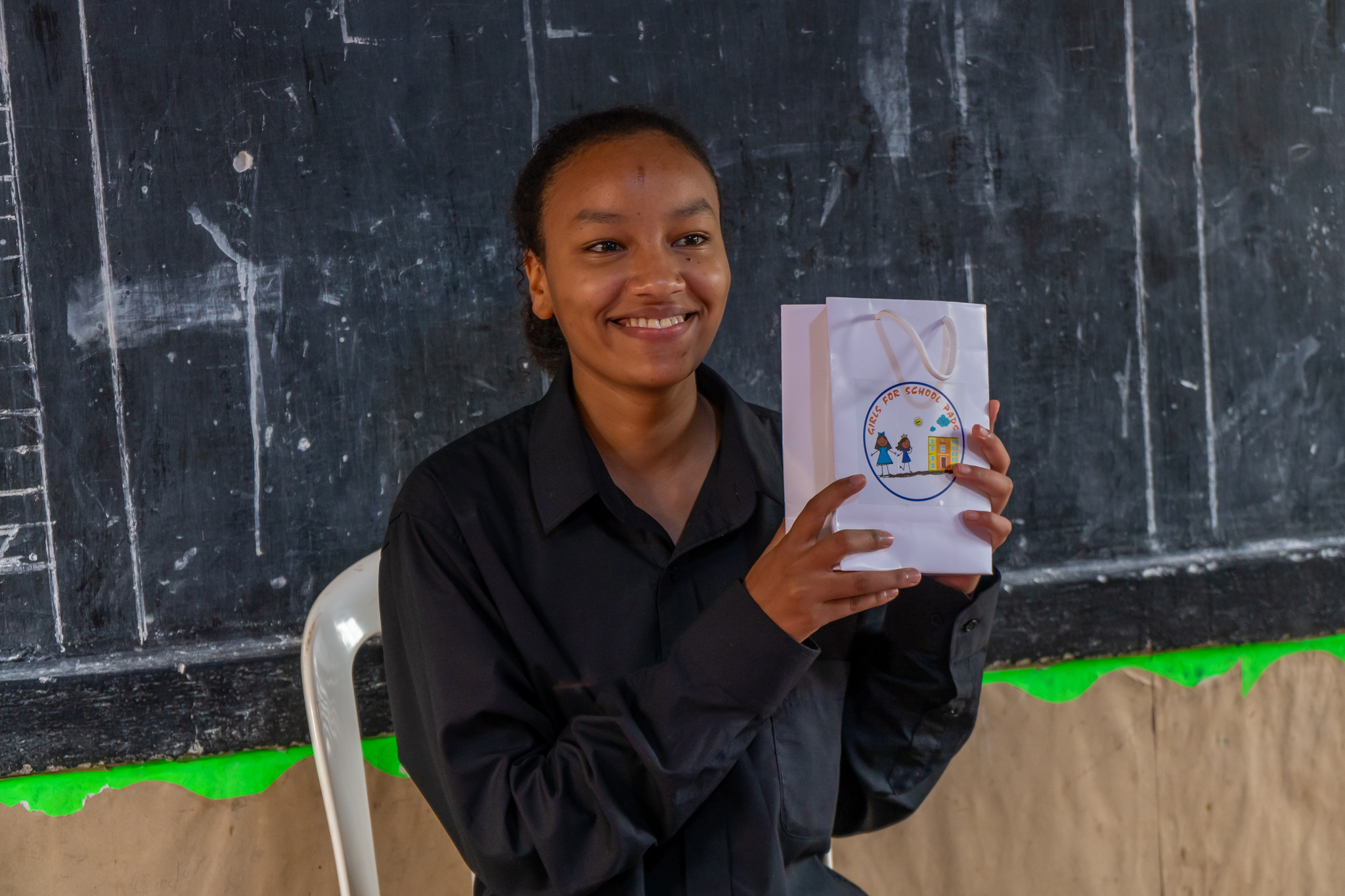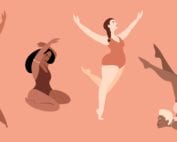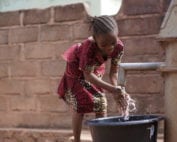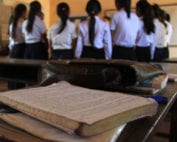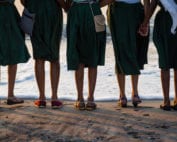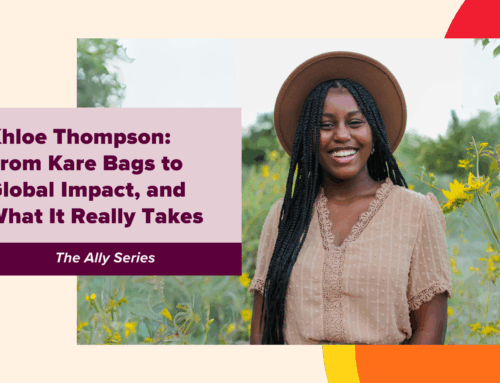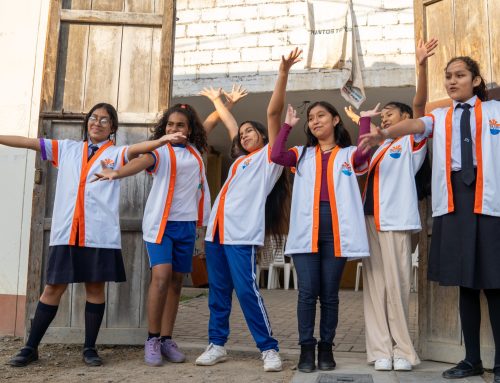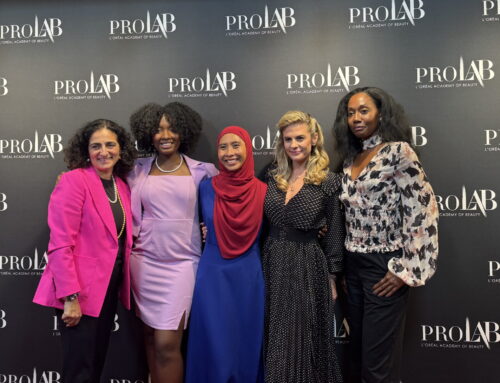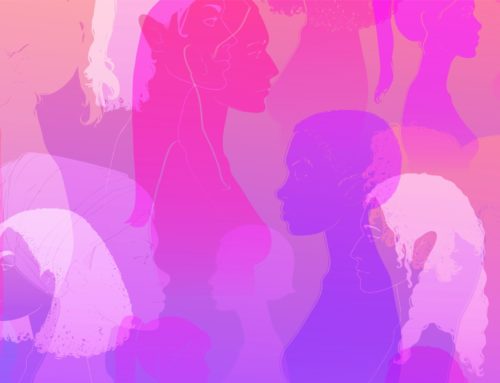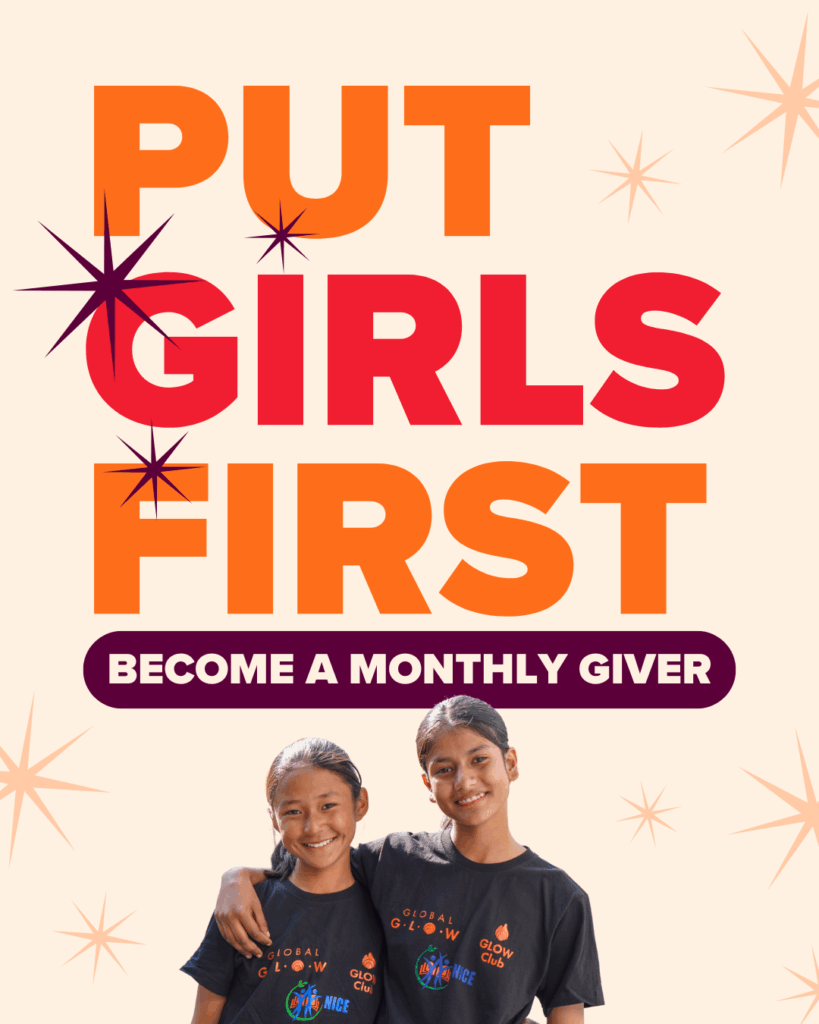A Girl-Led Solution to Period Poverty: A Q&A with the 18-Year-Old Co-Founder of Girls for School Pads, Uganda
Menstruation is a normal part of life. But globally, girls face discrimination, stigma, and shame when they’re on their periods — all of which keep them from accessing basic rights like education, health services, and full and equal participation in society. 18-year old GLOW Club alumna Kashish is changing the way her community thinks about periods, one pad at a time.
In Uganda, where Kashish is from, period poverty, or the inability to afford menstrual hygiene products, causes nearly a quarter of girls between the ages of 12 – 18 drop out of school once they begin menstruating. School absence rates for girls triple when they are on their periods.
Not only that — stigma surrounding menstruation keeps many Ugandan girls from participating in basic household or community activities while on their periods. Often, there is no space for them to ask basic questions about their bodies and how they function, which prevents them from understanding how to best manage their health.
As a high school GLOW Club student, Kashish began to realize just how much harm these issues were creating for women and girls in her community. In 2018, at the age of 13, she had the opportunity to attend the Global G.L.O.W. Global Summit in New York City: a convening of girl changemakers from around the world. It was there that Girls for School Pads was born.
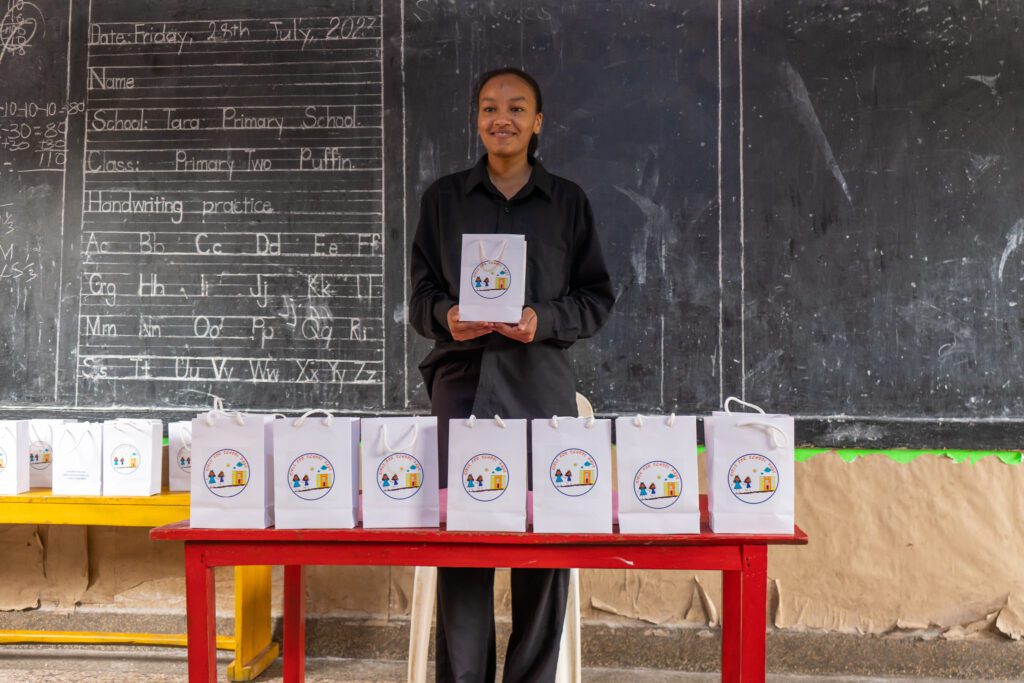
18-year-old Kashish is the co-founder of Girls For School Pads: a social enterprise in Uganda that sells low-cost reusable pads and uses the proceeds to send girls to school.
Girls for School Pads — a social enterprise and community impact project founded by Kashish and fellow GLOW Club member Patience — provides low-cost reusable sanitary pads to girls throughout Uganda while hosting free educational workshops and community dialogues about menstruation. All proceeds from pad sales go directly to funding girls’ education.
Since its founding, Girls for School Pads has reached approximately 500 women and girls. 60 girls across three Ugandan cities are currently continuing their education through the Girls for School Pads scholarship program.
We recently caught up with Kashish to learn more about the long-term impact her project is having on the lives of Ugandan girls. Read on to hear how her advocacy work is challenging period stigma by improving access to sanitary pads and encouraging open dialogue about menstruation.
This interview has been condensed and edited for clarity.
What is menstruation like for girls in Uganda?
Me personally, I didn’t have enough education about menstruation. When I got my period, I felt really uncomfortable. I cried. I didn’t know what to do. Because even at home, no one would speak about it. We would just live our lives like it wasn’t there. I didn’t even know about pads!
This is the reality for many girls throughout Uganda. They don’t even talk openly about it, even in their homes. While some of them are on their period, they are not allowed to cook or go near their parents, especially the male gender.
Most girls have issues maintaining their level of comfort with school during their periods. If a girl lacks pads, it can affect her education. For example, if she is supposed to go to school today and she gets her period and she has no pads, she won’t go to school. Some girls have been bullied by boys. Boys will tell them, “You’re disgusting,” or “You’re dirty.” So to avoid all that, girls will take the week off school. Then some of their parents will say, “Why are you wasting my money? You are just at home.” They tell them to drop out of school, so they end up dropping out.
How did you develop your idea for Girls for School Pads?
In GLOW Club, we would speak about the challenges girls face. I also gained skills, like leadership skills and counseling skills. Girls would come and ask me about menstruation and how to be comfortable with it, so I would guide and counsel them. My friend Patience and I had the opportunity to go to the U.S. to attend the Global G.L.O.W. Summit. We made a community action plan, and that’s where we got the idea to start our project.
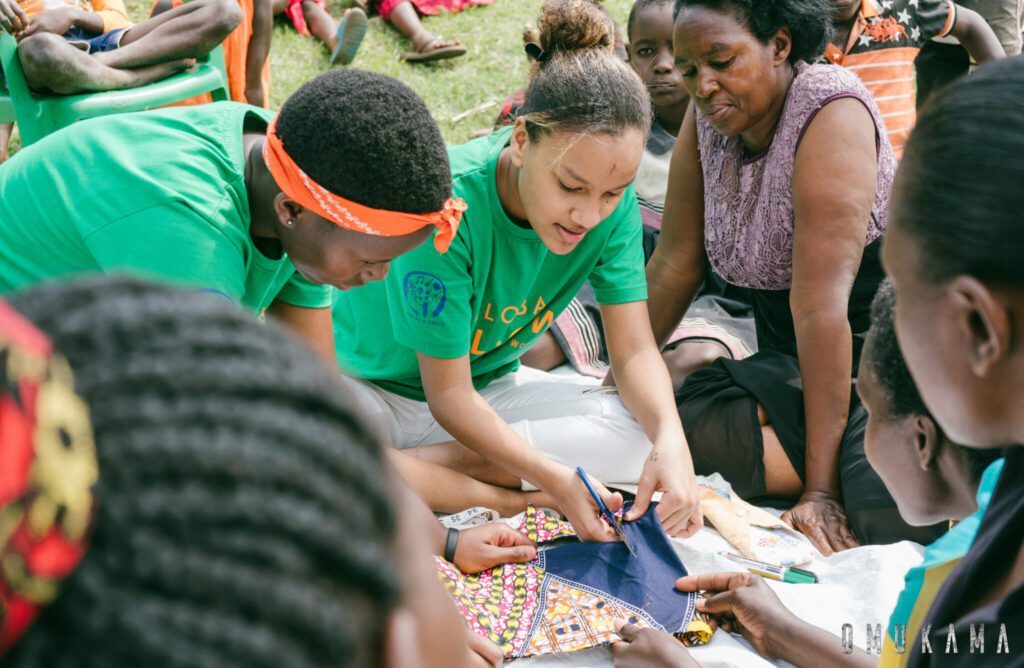
Kashish leading a reusable pad-making workshop for local women in rural Uganda in 2018. Kashish conducted surveys and led community dialogues to launch her project, Girls for School Pads.
After we developed our idea, we returned to Uganda and carried out community surveys to learn more about how lack of access to pads affects women and girls. We first met with groups of women and spoke to them about their problems and how they manage their menstruation. They told us that for them, it’s very difficult to balance their menstruation expenses and their household expenses. They said that buying a pad is very costly to them, so they resort to using cloth. They just get a piece of cloth and use it, which is not hygienic and can even be harmful to their health.
Since its founding, Girls for School Pads has used proceeds made by selling reusable sanitary pads to pay the school fees of 60 girls across three Ugandan cities.
Then we met with girls from the community. We sat them down and talked to them about periods. Most of them were very shy about it and didn’t want to share about it. We even met a girl who at first lied and said that she hadn’t started her period yet because she was too shy to share. Eventually, she opened up and said that at home, her dad doesn’t give her mom money, so they use pieces of cloth.
Join the conversation to end period stigma by using hashtag #TalkAboutItPeriod and downloading our digital toolkit!
We informed both groups that using cloth fabric is not good and can cause health issues. We pitched our idea, and they were really thankful. They didn’t even know that reusable pads exist.
How does the Girls for School Pads Project work?
Girls for School Pads provides menstrual health guidance, education, and materials to girls and the community at large. Over the past three years, we have been visiting communities and schools teaching girls about reusable sanitary pads and their menstrual health.
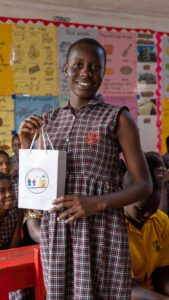
Girls for School pads sells low-cost reusable sanitary pads in low-income communities. When washed properly, the pads can last for up to one year, preventing the health issues that can arise when using old cloth for period management.
We make reusable sanitary pads out of locally available cloth and cotton. When visiting schools and communities where store-bought pads are difficult for families to afford, we provide demonstrations on how to properly wash and dry the pads so that all of the bacteria can be killed.
We sell the pads for 10,000 Ugandan shillings (approximately $2.50 USD), and when washed properly they can be used for up to one year. Store-bought pads can only be used once, and will typically cost a local family around 50,000 shillings per month. The profits from our project have paid for my school fees, and have also helped pay for the school fees of 60 girls across Kampala, Fort Portal, and Gulu who would not have otherwise been able to continue their education.
We’ve also taught some women in our community how to make the reusable sanitary pads themselve. As a result, they make the pads and sell them with our logo on them. The women are able to earn a living, and also, it helps spread awareness. As people buy the pads, they learn about the background of our project. And also, the women earn money to help with their expenses at home and improve their standard of living.
What has been the impact of Girls for School Pads on your community?
Our Girls For School Pads Project has made a positive impact on the lives of girls. Girls can now openly speak about their periods. They educate their neighbors and other girls at school. They’re able to advise other people.
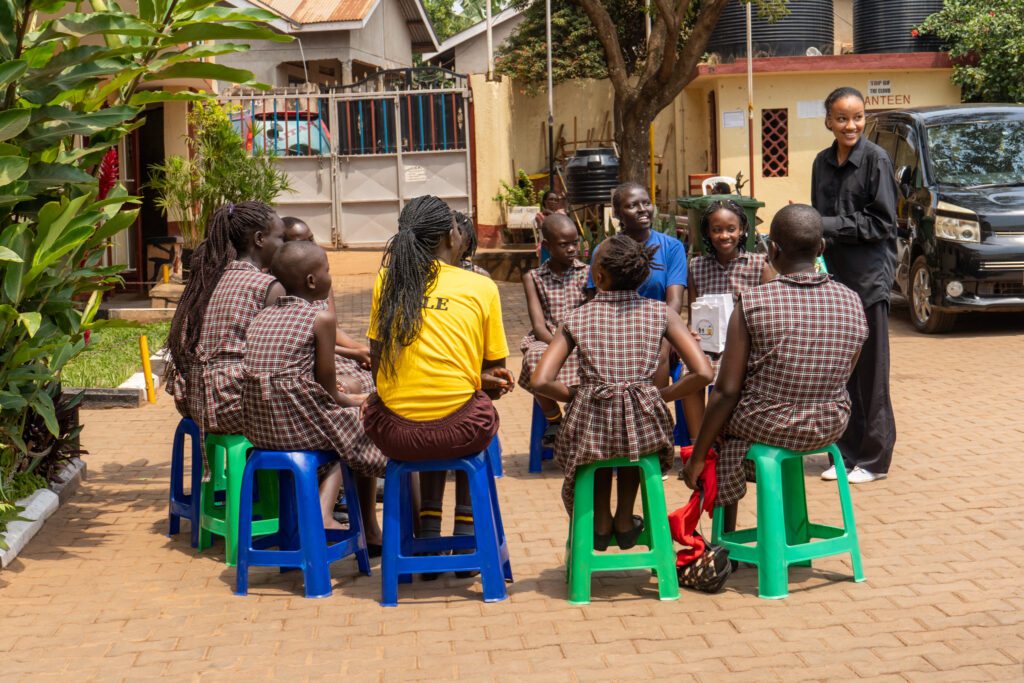
Kashish leads educational workshops for girls in her community, encouraging them to speak openly about menstruation.
Also some men have changed the way they have been thinking about periods. Some fathers could not even look at their daughters when they were on their periods. But as we went on educating them, they saw no harm in being with your daughter while she’s on her period. So it has really created a positive impact on society where girls have been embraced during their periods and have also embraced their periods.
What have you learned through this project, and what are your long-term goals?
Through this project, I have learned that I can make a change and so can other girls. I was very shy, but through this project I have developed myself, and now, I’m a role model to other girls.
Our goal for this project is for it to expand and keep on expanding, not only in Uganda, but to reach different girls in other countries. We also hope to one day develop a biodegradable sanitary pad that will be even more environmentally sustainable.
We believe we can make a global change with our project because we have started a chain. We help and teach people, and then they teach other people. So I hope our chain goes on. I hope that girls teach themselves, their friends, their relatives, and even their own children one day so that girls can live in a free world and be comfortable with their menstruation.
Global G.L.O.W. mentors girls around the world to become powerful advocates and confident leaders. Since inception, our GLOW Clubs have ignited the power of over 91,000 girls to do 3 transformative things: increase their confidence, strengthen their voice, and build their power. In honor of Menstrual Hygiene Day, support bold period advocates like Kashish at globalgirlsglow.org/donate.
This transformation story has been made possible through our collaboration with Art of Child, who coordinate GLOW Clubs for girls throughout Uganda. Special thanks to GLOW Club Coordinator Remmie Bishanga, and to Kashish for encouraging girls to Talk About It. Period.
